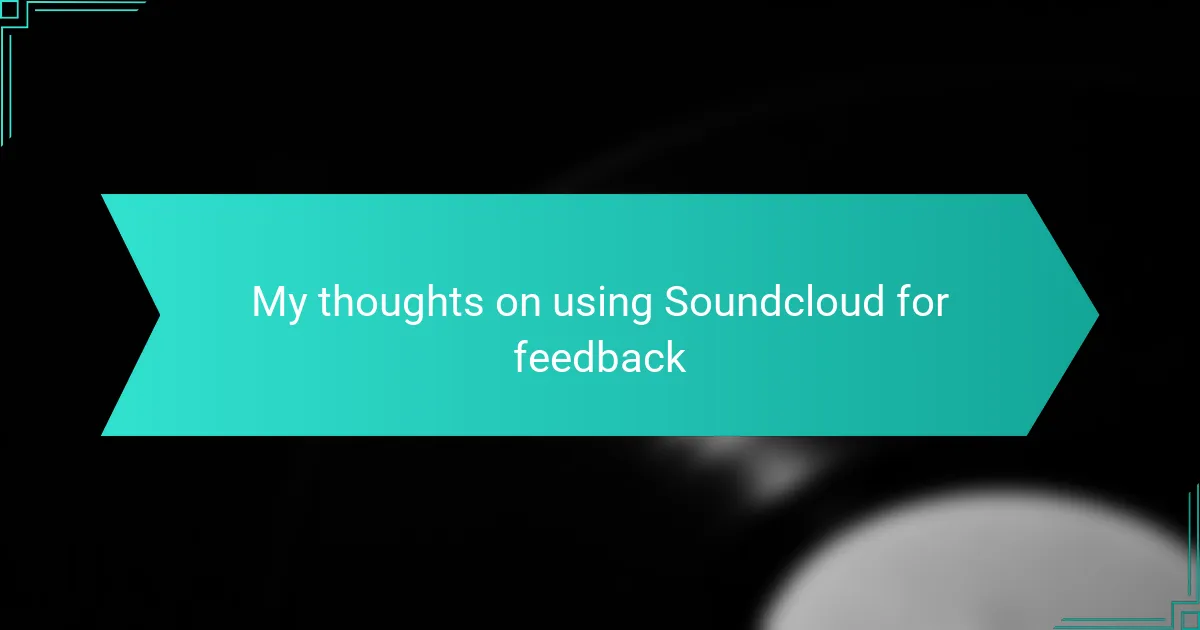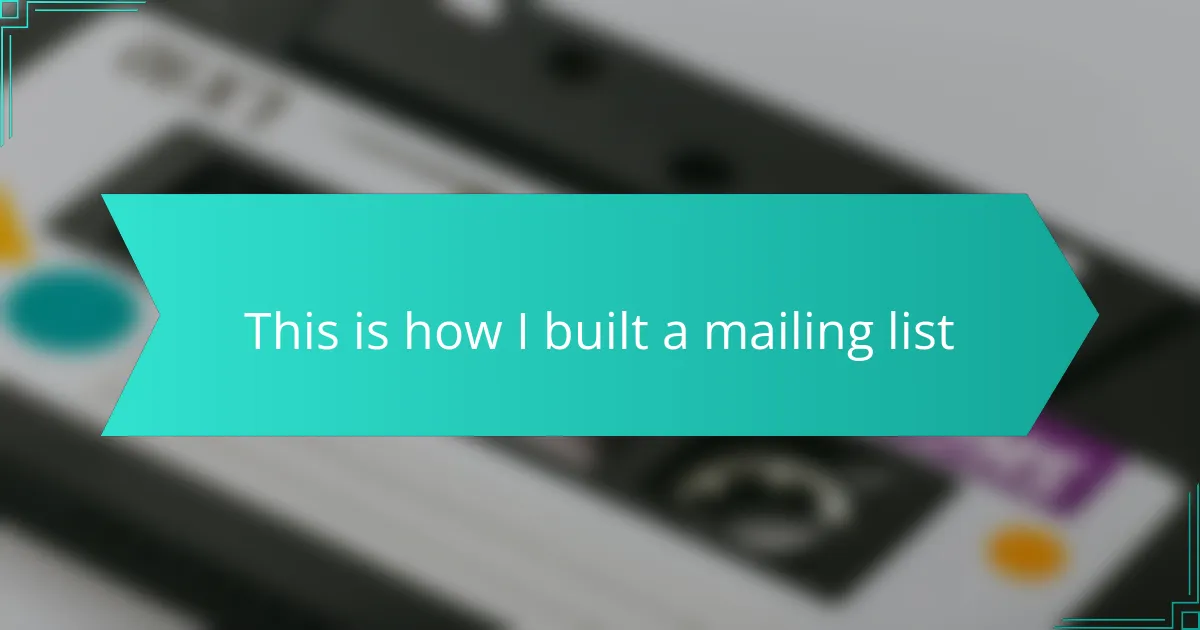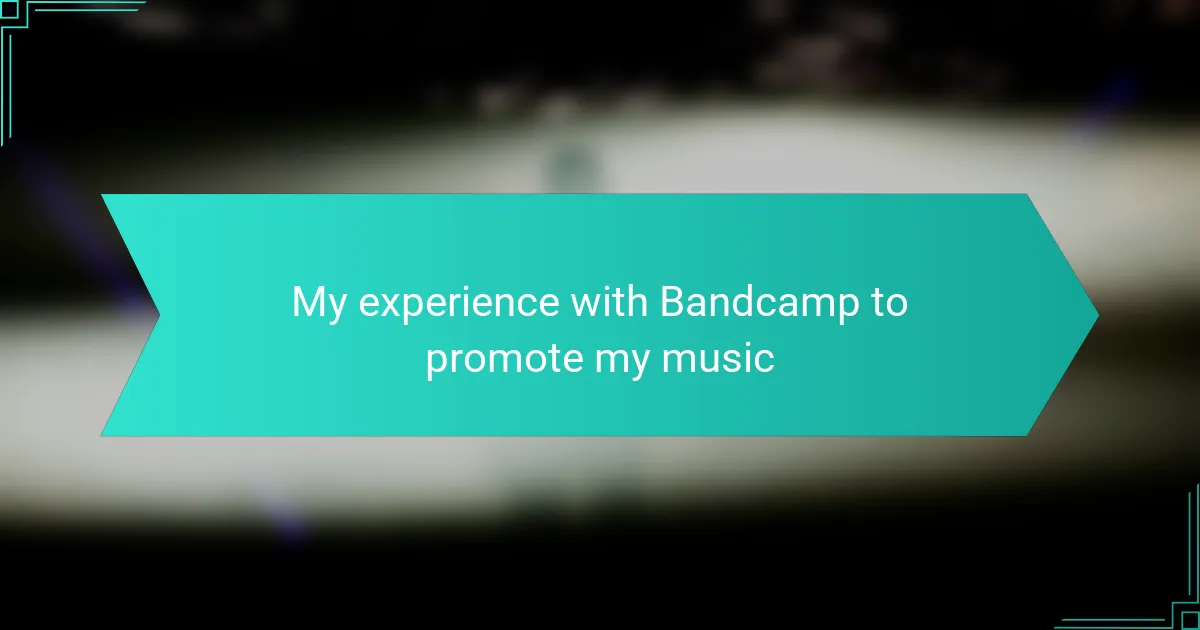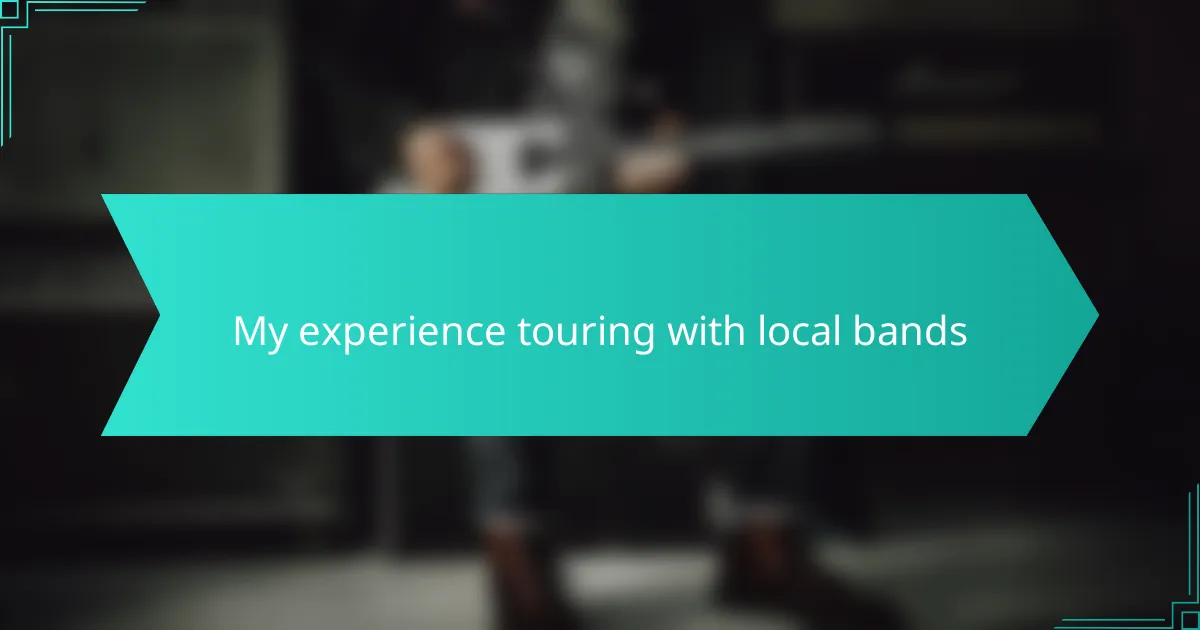Key takeaways
- Utilizing online platforms like SoundCloud is essential for musicians to share their work and receive feedback from a diverse audience.
- Feedback is crucial for artistic growth, providing actionable insights and fostering community among musicians.
- Engaging directly with listeners and being specific in feedback requests can enhance the quality of responses received.
- Creating a feedback loop by sharing updated tracks encourages ongoing interaction and builds a loyal audience.
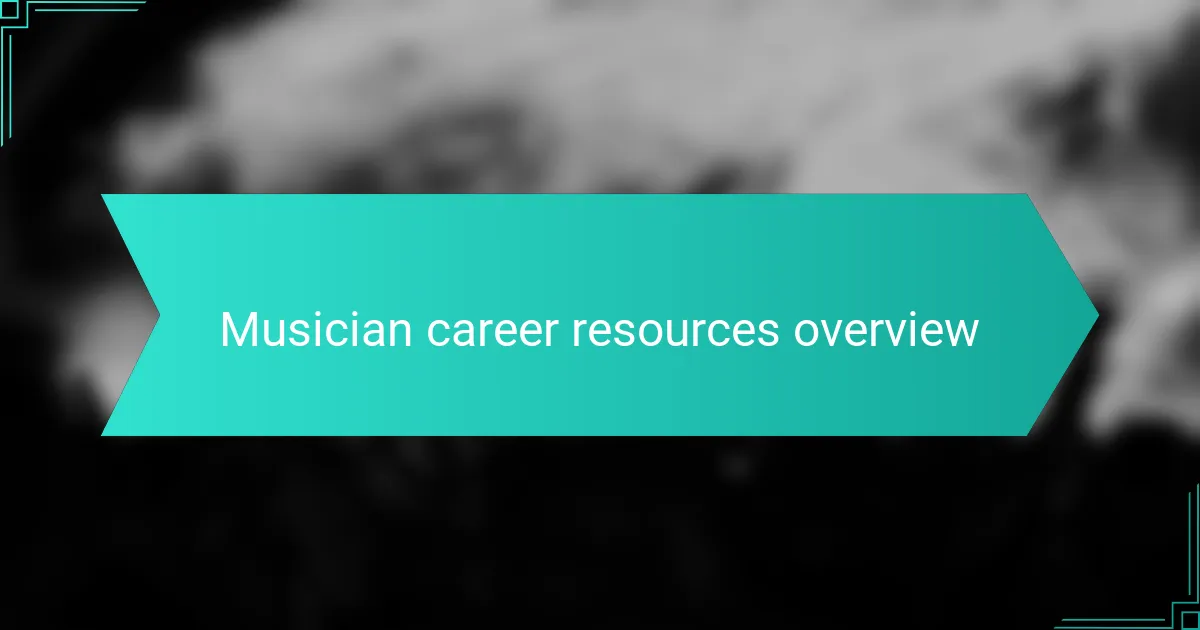
Musician career resources overview
Musician career resources are essential for anyone looking to navigate the complexities of the music industry. I remember when I first started out; I felt overwhelmed by the sheer volume of information available. Thankfully, I found a variety of tools that helped me hone my craft and build connections.
In today’s fast-paced digital world, having the right resources can make a significant difference in a musician’s journey. From platforms for distributing music to forums for connecting with other artists, these resources provide invaluable support. Here are a few key categories that I believe every musician should explore:
- Online platforms: Websites like SoundCloud allow you to share your music and gather feedback from listeners and fellow musicians.
- Networking opportunities: Online communities and social media groups can lead to collaborations or partnerships.
- Educational resources: Courses on music production, songwriting, and marketing can enhance your skills and knowledge.
- Promotional tools: Use of social media and email lists to reach your audience effectively.
- Financial guidance: Resources that help in understanding contracts, royalties, and budgeting for music projects.
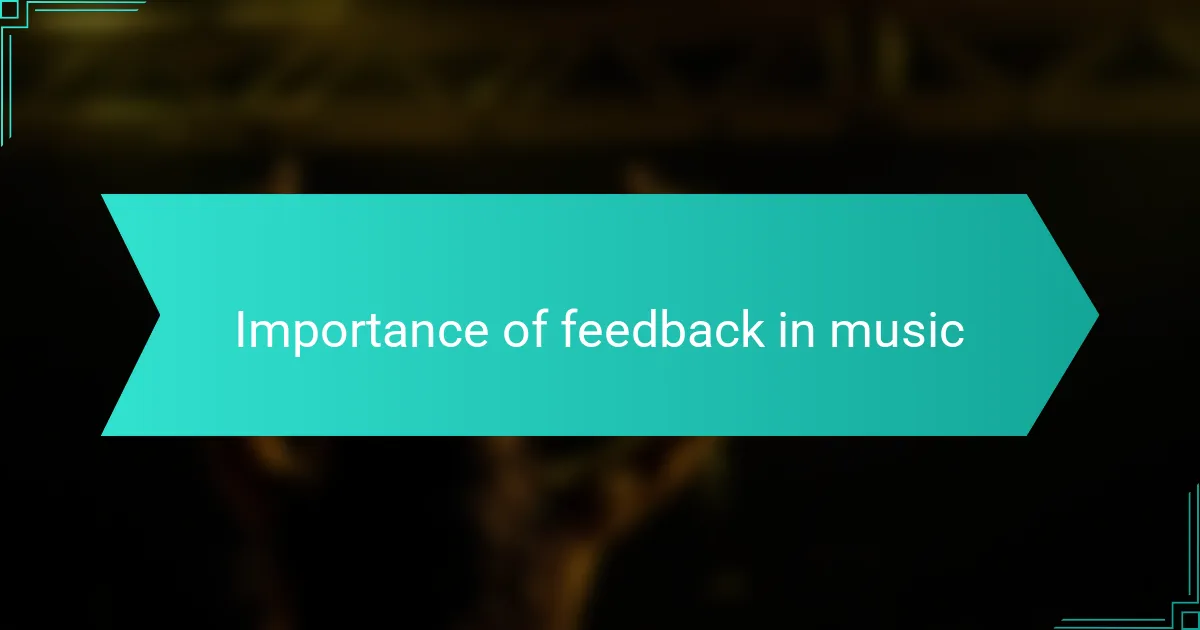
Importance of feedback in music
Feedback is crucial in music because it provides insights that help us grow as artists. I remember when I first shared a track online; the responses helped me understand my strengths and areas for improvement. Without feedback, how do we even know if our message resonates?
Moreover, constructive criticism can ignite creativity. I once received feedback that suggested I tweak a bridge in my song, leading to a more dynamic composition. That moment was a turning point for me, reinforcing the idea that listening to others can transform our work into something even greater.
Additionally, feedback fosters community among musicians. When we share our music and discuss it, we create bonds with fellow artists. I’ve met some amazing collaborators simply by engaging with the feedback process, which makes me realize that music, at its heart, thrives on connection and shared experiences.
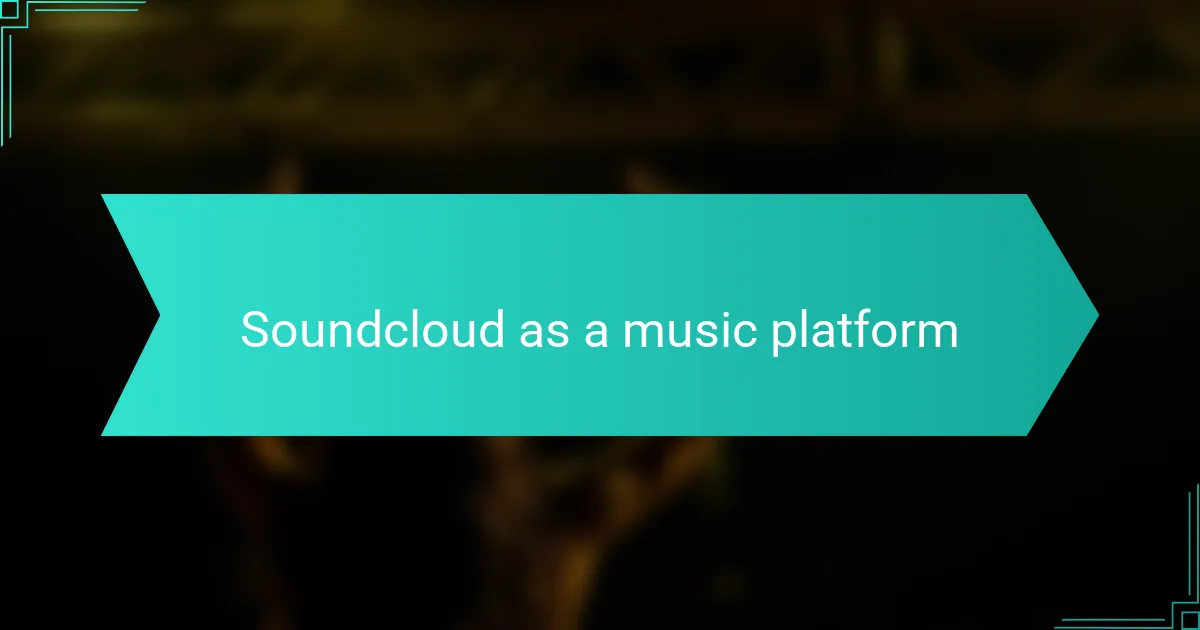
Soundcloud as a music platform
SoundCloud has become a vibrant community where musicians can share their work and connect with listeners. I remember uploading my first track there, feeling a mix of excitement and vulnerability. The platform’s accessibility makes it easy for artists like me to showcase our music, while also tapping into a diverse audience eager for fresh sounds.
What I appreciate most about SoundCloud is its interactive nature. You can receive direct feedback from listeners and fellow musicians, which can be invaluable for growth. This real-time engagement not only motivates artists but also fosters a sense of community.
- Intuitive interface for easy uploads and sharing
- Opportunities for connecting with fellow musicians and listeners
- Real-time feedback from the audience
- Diverse range of genres and styles fosters creativity
- Great platform for promoting new music and events
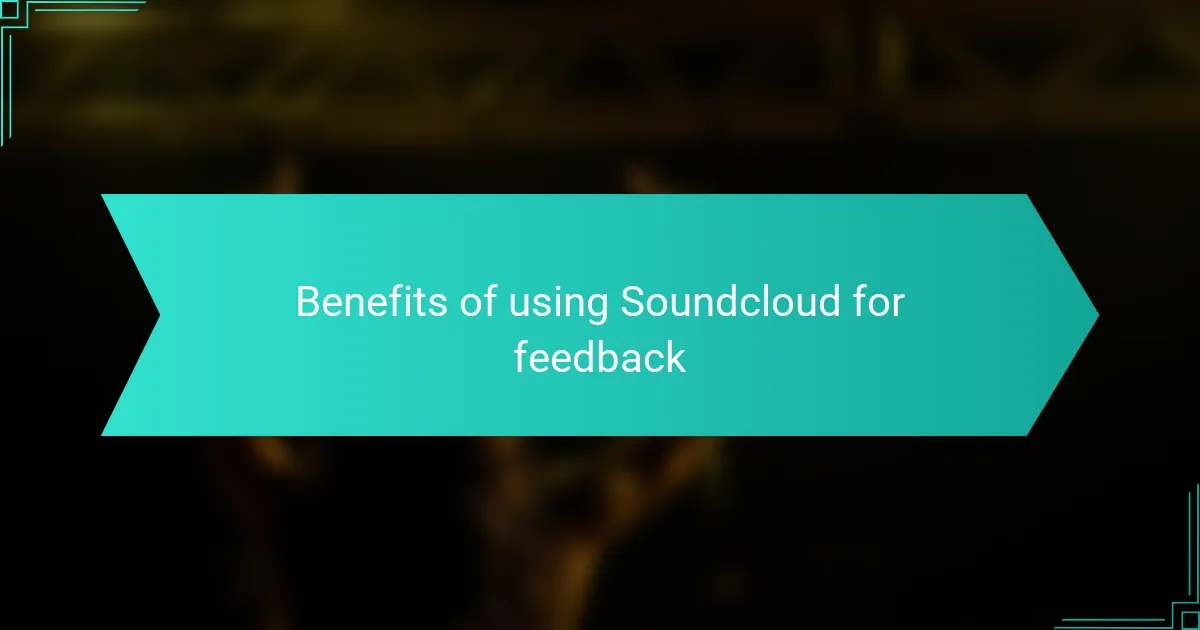
Benefits of using Soundcloud for feedback
Using SoundCloud for feedback offers musicians a unique opportunity to connect directly with listeners and fellow artists. I remember when I first shared my track there; the immediate responses from the community were both encouraging and constructive. It’s refreshing to receive a mixture of praise and helpful critiques, which can really help hone your craft.
Another key benefit is the ease of sharing and discovering new music. I’ve found that engaging with others’ tracks often leads to reciprocal feedback on my music. This two-way street promotes a sense of community and collaboration that is invaluable for any artist looking to grow.
The platform also allows for contextual feedback through comments that can be tied to specific timestamps in a track. This means you can see exactly what listeners appreciate or feel should be improved, making the feedback more actionable.
| Benefit | Description |
|---|---|
| Direct Engagement | Connects artists and listeners for real-time feedback. |
| Community Support | Encourages reciprocal listening and feedback among users. |
| Actionable Insights | Comments are timestamped, providing context for suggestions. |
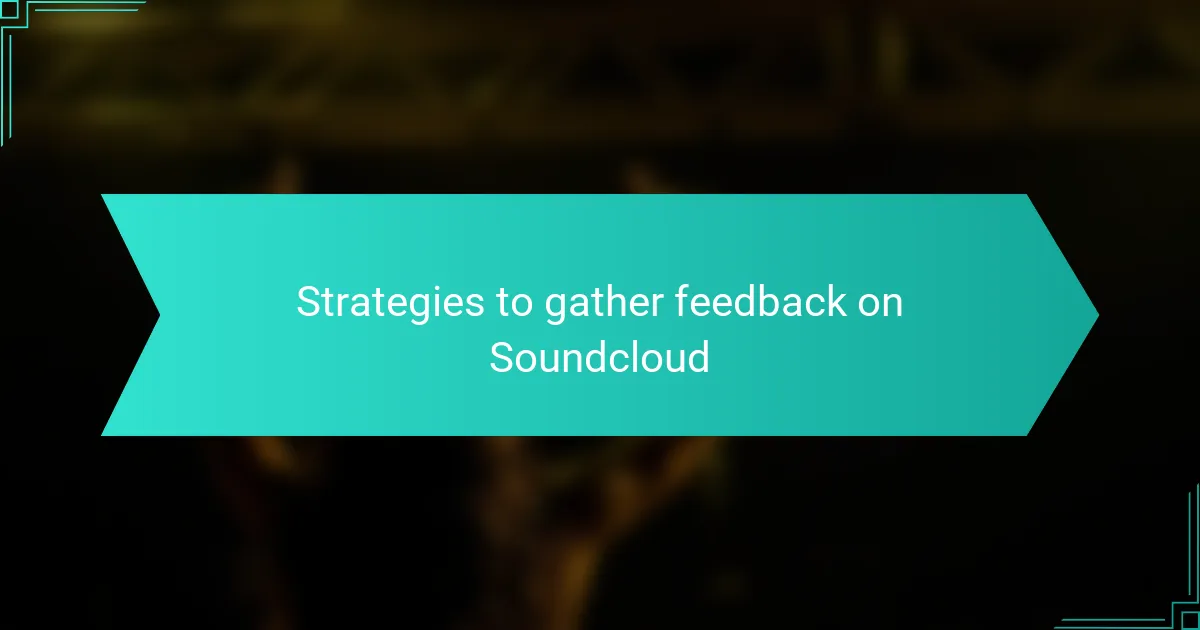
Strategies to gather feedback on Soundcloud
When I first started sharing my music on SoundCloud, I would often hover over my notifications, eagerly awaiting feedback. It’s such an exhilarating moment when someone takes the time to comment on your song. To gather meaningful feedback, I found establishing connections with fellow musicians and regular listeners really helpful. Engaging with their work in return creates a sense of community, making them more inclined to provide honest insights about your music.
Understanding the best channels for feedback can make a huge difference. Here are some strategies I’ve used to effectively gather feedback on SoundCloud:
- Engage with your audience: Ask specific questions in your track description to encourage listeners to share their thoughts.
- Join SoundCloud groups: Find communities that focus on your genre; they often have members eager to give constructive critiques.
- Utilize social media: Share your SoundCloud links on platforms like Twitter or Instagram and ask followers for their opinions.
- Create feedback tracks: Post rough versions of your songs or ask for feedback on specific elements like vocals or mixing.
- Offer reciprocation: Encourage feedback by offering to listen to and critique their music in return.
These techniques have fostered valuable discussions and deepened my connections with listeners, making the journey more rewarding.
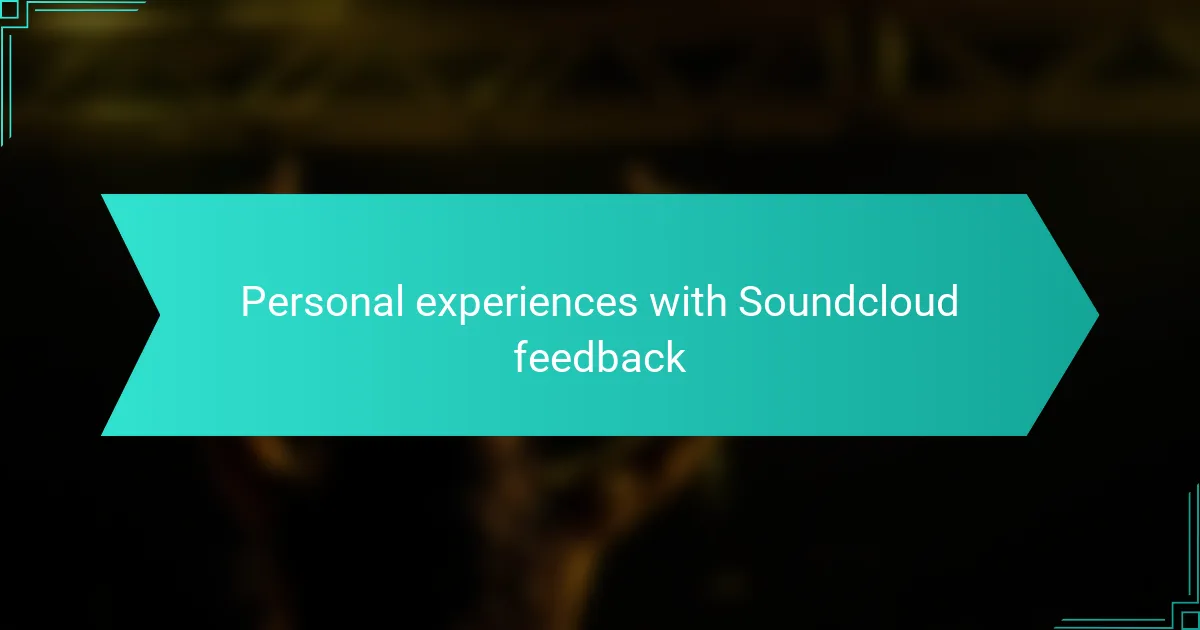
Personal experiences with Soundcloud feedback
During my time on SoundCloud, the feedback I received was often a revelation. I vividly remember one instance where a listener noted specific moments in my track that sparked emotional responses. This type of targeted feedback was not just uplifting; it offered me insight into my music that I hadn’t considered before. Have you ever found out something surprising about your own work through feedback?
There was a point when I felt uncertain about the direction of a new song. I shared a rough demo on SoundCloud and was flooded with responses. Some listeners highlighted parts they loved, while others offered constructive criticism on sections that felt flat. That mix of encouragement and honesty really motivated me to refine my composition. It’s fascinating how a community can energize you when you’re feeling lost, wouldn’t you agree?
One memorable comment came from a fellow musician who offered to collaborate after hearing a piece I posted. That feedback not only validated my work but also opened up a new avenue for creativity. This experience highlighted the value of feedback as more than just critiques—it can also lead to collaboration and growth. Have you ever been surprised by how a simple comment changed your musical journey?
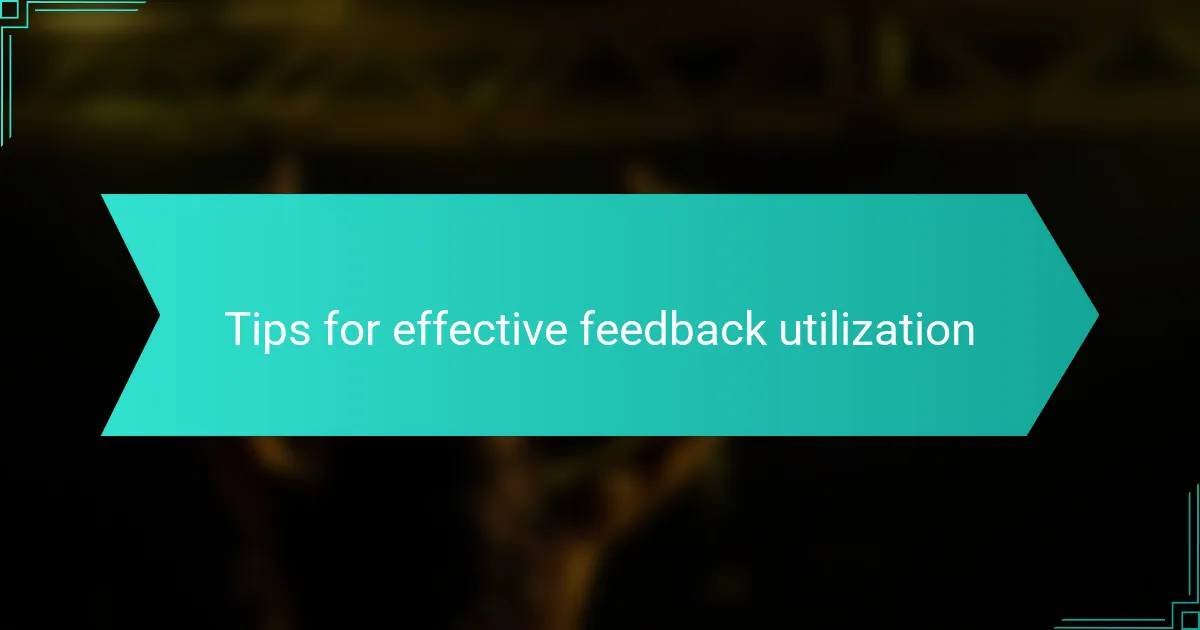
Tips for effective feedback utilization
When using SoundCloud for feedback, I’ve found that being specific in your requests can significantly enhance the quality of the responses you receive. Instead of asking for general thoughts, I suggest pinpointing particular elements of your track, like the mix or lyrical content. This not only clarifies your needs but also guides listeners to provide actionable insights.
Another key tip is engaging with your audience. Responding to their feedback, whether positive or critical, builds a sense of community. I’ve noticed that when I acknowledge comments, it encourages even more listeners to share their thoughts in future tracks. This interaction can lead to deeper connections, which can be invaluable for a musician’s growth.
Lastly, consider creating a feedback loop. After implementing suggestions, share updated versions of your tracks and invite more comments. This is a dynamic way to show your audience that their opinions matter, which in turn may foster loyalty and excitement around your music.
| Effective Feedback Utilization | Description |
|---|---|
| Be Specific | Ask listeners to focus on particular aspects like lyrics or production style. |
| Engage Actively | Respond to comments to foster a community and encourage future interactions. |
| Create a Feedback Loop | Share updated tracks based on feedback to show listeners their input matters. |
